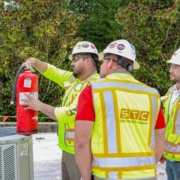Workplace safety is a critical aspect of any organization’s success. By prioritizing safety, companies can create a culture that values the well-being of their employees and safeguards against potential hazards. The Occupational Safety and Health Administration (OSHA) sets guidelines and standards to ensure the safety and health of workers across various industries. In this blog, our team here at STC will explore the top five industries that are required to follow OSHA safety standards to maintain a secure and protected work environment.
Construction Industry OSHA Safety Standards
The construction industry is known for its diverse range of activities and associated risks. OSHA regulations are pivotal in safeguarding workers from potential accidents and hazards on construction sites. These standards cover areas such as fall protection, hazard communication, scaffolding safety, and electrical safety, among others. Compliance with OSHA guidelines in the construction industry is crucial to prevent injuries, ensure proper training, and promote the use of personal protective equipment (PPE).
Manufacturing Industry
The manufacturing industry faces various safety challenges with heavy machinery and complex processes. OSHA standards help mitigate risks associated with machine guarding, lockout/tagout procedures, hazardous material handling, and ergonomics. Implementing comprehensive safety programs in the manufacturing sector ensures the well-being of employees and reduces the likelihood of accidents, injuries, and exposure to harmful substances.
Healthcare Industry
In the healthcare sector, workers face unique safety hazards due to the nature of their work. OSHA guidelines for the healthcare industry focus on preventing exposure to bloodborne pathogens, maintaining a safe work environment for healthcare personnel, and minimizing the risk of injuries associated with lifting and handling patients. Compliance with OSHA regulations in healthcare facilities is crucial to protect healthcare workers and promote patient safety.
Transportation Industry
The transportation industry, including trucking, shipping, and logistics, comes with its own set of safety concerns. OSHA regulations in this sector address topics such as driver safety, loading and unloading procedures, hazardous material transportation, and vehicle maintenance. Adhering to these standards helps prevent accidents, injuries, and environmental incidents, ensuring the safety of workers and the public.
Oil and Gas Industry
The oil and gas industry operates in high-risk environments where safety is paramount. OSHA standards in this industry cover areas such as process safety management, hazard communication, confined space entry, and personal protective equipment. Strict compliance with OSHA regulations in the oil and gas sector is crucial to prevent accidents, protect workers from hazardous substances, and minimize the environmental impact of operations.
Want to learn more about OSHA safety standards and how they apply to your industry? STC is here to help. With our expertise in safety training and compliance solutions, we can assist you in creating a culture of safety within your organization. Visit our blog today for informative articles, practical tips, and expert guidance on workplace safety. Contact us now to start prioritizing the well-being of your employees and achieving regulatory compliance!
Photo Sourced from Getty Images: #1446902902












